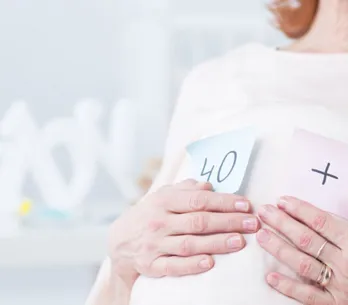Can you drink when pregnant?
But a recent controversial study published in the International Journal of Obstetrics and Gynaecology has suggested that light drinking does not adversely affect toddler development.
Furthermore it has suggested that it can even improve a child’s behavioural and cognitive growth. This has caused confusion over whether drinking during pregnancy should be avoided. We spoke to consultant medical information pharmacist Nargis Ara, to see whether these findings mean that mothers-to-be can enjoy up to two drinks a week without harming their baby or whether it really is safer to steer clear of alcohol during pregnancy altogether.
Zero alcohol during pregnancy
Government guidelines warn women who are pregnant or
trying to conceive not to drink any alcohol at all. This new study suggests that this could be relaxed to allow 1-2 units a week (a 175ml glass of wine, a 50ml glass of spirits or just under a pint of beer each week) to be consumed.
Nargis points out that it’s important that women do not underestimate the risks of drinking while pregnant.
She explains: “There are so many variables with this kind of study. For example diet, lifestyle and age of the pregnant mother.
"It’s difficult to prove definitively that all the positive things they’ve found with the children examined are due to their mothers consuming up to two glasses of alcohol a week.”
Alcohol and your developing baby
Although there are questions being raised over the effects of 1-2 units, the damaging aspects of alcohol on babies have long been accepted by the medical community.
It has been scientifically proven that congenital deformations are mainly caused by a high level of alcohol consumption during pregnancy. Drinking has been found to be a factor in premature birth and underweight infants, as well as stillborn babies.
It’s important to remember that the placenta does not protect the foetus from alcohol or act as a barrier to stop it passing through to their developing organs.
Nargis says: “There are mental effects on brain development that happen to babies when they are exposed to alcohol in the womb. There are huge risks with alcohol consumption, but this study is almost advocating that it’s a good thing to have some alcohol while pregnant.”
Foetal Alcohol Syndrome
Babies born with Foetal Alcohol Syndrome (FAS) can have severely delayed growth, cardiac and brain anomalies, facial deformations and motor handicaps.
These are serious handicaps: even where treatment exists, it cannot reverse the damage done. If a child suffers from a few of these problems in a milder form, their condition is known as Foetal Alcohol Effects (FAE).
The problems manifest themselves a few years into the child’s life, when they start school and begin to display behavioural problems, learning difficulties and concentration issues.
Although the study found no increased risk of negative impacts from drinking, Nargis worries that these findings confuse the issue of drinking while pregnant. She says:
“As a scientist, I don’t think there’s enough evidence there for women to take this study as evidence that it’s a good thing to drink while pregnant.”
Our advice
If in doubt don’t drink. If you have just found out that you are pregnant then make an appointment with your GP.
It is very easy to confuse how many units are safe to drink at once, or think that you can drink more than is safe to do so. Doctors and midwives are there to offer non-judgemental support and guidance to ensure the wellbeing of both yourself and your unborn child. While it remains unclear what level of alcohol consumption has adverse effects, the safest option would be to completely abstain.
For more information on the study visit the site for the International Journal of Obstetrics and Gynaecology.













